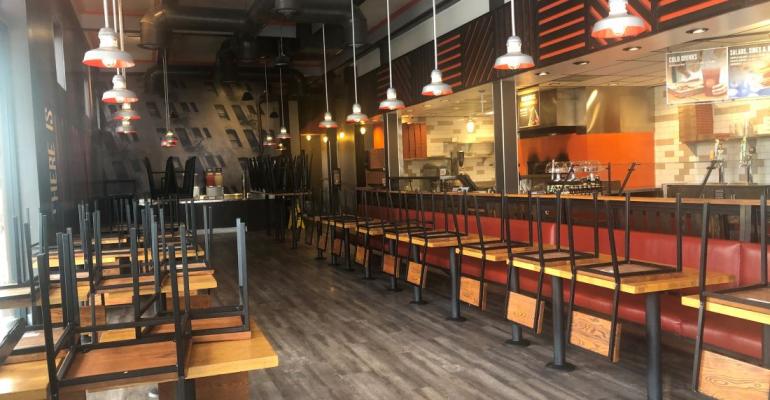The National Restaurant Association has released a set of principles to its state restaurant association partners to help bring cohesion as mandates to limit restaurant operations have varied across the U.S., prompting widespread confusion.
“Restaurants need a government lifeline during this crisis that will allow employees and owners to weather the storm and be ready to spring back into action quickly. Our communities need restaurants in a position to stimulate our local economies, help our employees get back to work, and generate tax revenue when this crisis subsides,” Mike Whatley, Vice President, State and Local Affairs
The memo outlines a process for closing restaurants while keeping off-premise options and economic relief in the form of direct aid, suspension of taxes and a cap or reduction to delivery fees from third-party marketplaces, such as Grubhub or DoorDash. These third-party marketplaces have come under fire for the fees they charge to restaurants, which are sometimes as high as 30%.
Below, is the memo sent to state restaurant associations:
Guidance on Restaurant Closures:
- State and local governments looking to close restaurants should rely on science to make any decisions regarding closures.
- If a state or local government determines that it needs to prohibit dine-in service for restaurants, it should allow restaurants to offer takeout, drive thru, and delivery.
- These operations involve minimal interactions between people (less person to person contact than someone going to a grocery store).
- Grocery stores are currently experiencing product shortages and significant crowds. Restaurants have significant food inventory that can help feed our communities and alleviate crowding at grocery stores
- A regulation that completely closed restaurant operations will result in significant food waste that could be used to feed our communities.
Guidance for Economic Stimulus:
- Cash flow is key for the restaurant industry currently as customer traffic and sales have plummeted. Below is a menu of options for policymakers to assist the restaurant industry during this critical time.
Direct Aid to Restaurants and Employees:
- State grants to small businesses; ensure that such support is not limited to restaurants that have closed but to any that can easily demonstrate significant hardship.
- Tax credits with expedited processing for retaining employees during the COVID- 19 crisis.
- Regulatory relief for restaurants regarding unemployment claims.
Taxes and Fees:
- Suspend meals taxes indefinitely or allow restaurants to keep meals tax revenue. If a government maintains a meals tax, money should be used to promote restaurant industry to residents within its taxing jurisdiction once crisis is over.
- Delay sales tax remittance for restaurants, such as a 90 day extension for remittance.
- Suspend indefinitely business improvement and other hospitality fees/taxes. o Suspend or defer property, estimated income, and franchise taxes (in effectproviding a loan).
- Quickly refund overpayment of estimated taxes.
Payment Relief:
- Prohibit landlords from evicting restaurants for non-payment of rent during the COVID-19 crisis. Allow restaurants to pay back rent over a series of months after the crisis abates.
- Prohibit utilities from shutting off services to restaurants during the COVID-19 crisis due to lack of payment.
- Extend the window for restaurants to make payments on COVID-19 related expenditures.
Government Mandates:
- Suspend any government mandates set to come into effect in the next two months.
- Lift cashless transactions bans in applicable jurisdictions to facilitate better off- premise ordering and delivery.
- Suspend mandatory scheduling regulations in applicable jurisdictions to give employers scheduling flexibility.
Delivery Regulations:
- Cap or reduce delivery fees for restaurants on third party delivery.
- Allow restaurants with valid liquor licenses to delivery alcohol to customers.
Contact Gloria Dawson at [email protected]
Follow her on Twitter: @GloriaDawson





